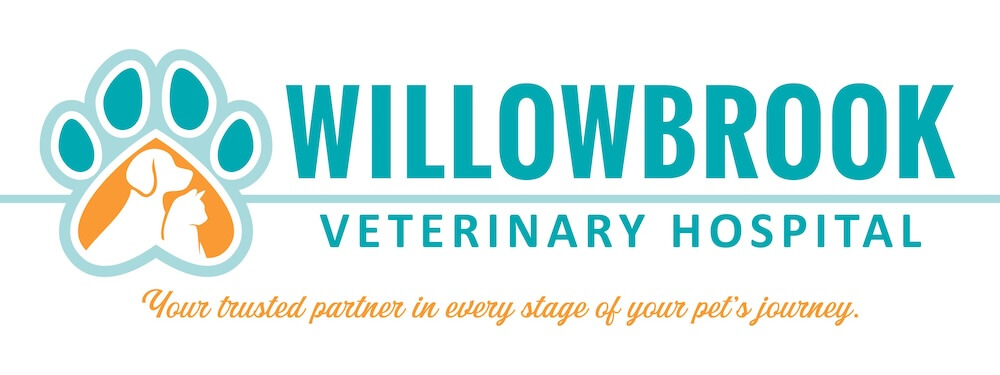Spaying & Neutering Your Dog: What to Know
Spaying and neutering are important decisions that benefit your dog’s health and help control the pet population. At Willowbrook Veterinary Hospital, we’re here to answer your questions and guide you through the process with compassionate care.
What Is the Difference Between Spaying and Neutering?
- Spaying (also called ovariohysterectomy) is the surgical removal of a female dog’s ovaries and uterus.
- Neutering (also called castration) is the surgical removal of a male dog’s testicles.
Both procedures prevent unwanted pregnancies and offer long-term health benefits.
At What Age Should I Spay or Neuter My Dog?
The ideal age can vary based on your dog’s breed, size, and health. Generally:
- Small to medium dogs: 5–6 months old
- Large or giant breeds: may benefit from waiting until 12–18 months
We’ll help you decide the best timing for your individual dog.
What Are the Health Benefits of Spaying or Neutering My Dog?
- Spaying and neutering can:
- Prevent unwanted litters
- Reduce the risk of certain cancers (mammary, ovarian, testicular)
- Eliminate uterine infections (pyometra) in females
- Help reduce roaming and certain aggressive behaviors in males
Are There Any Reasons Not to Spay or Neuter Your Dog?
In some cases, delaying the procedure may be recommended for large-breed dogs to allow for full skeletal development. Dogs with certain medical conditions may also need specialized planning. We’ll work with you to make the best decision for your dog’s health.
Are There Any Risks Associated with Spaying or Neutering?
Like all surgeries, there are risks, including reactions to anesthesia, infection, or bleeding. These complications are rare, and our skilled surgical team takes every precaution to keep your dog safe.
How Should I Prepare My Dog for the Spaying or Neutering Procedure?
- Follow any fasting instructions we provide (usually no food after midnight before surgery)
- Make sure your dog is clean and healthy before the appointment
- Keep your dog calm and indoors the night before
What Should I Expect on the Day of the Surgery?
Your dog will be admitted in the morning. After a pre-surgical exam, lab work, and anesthesia, the procedure is performed in our sterile surgical suite. We’ll monitor your dog closely before, during, and after surgery, and you’ll receive a call once they’re in recovery.
How Long Does the Spaying or Neutering Procedure Take?
The surgery typically takes 30–60 minutes, depending on your dog’s size, age, and sex. Recovery from anesthesia will take a few more hours.
What Is the Recovery Process Like for My Dog?
Most dogs go home the same day and are back to their normal selves within 7–10 days. You may notice some drowsiness, mild swelling, or tenderness near the incision site for a few days.
How Can I Care for My Dog After the Surgery?
- Keep your dog calm and restrict activity for 7–10 days
- Prevent licking or chewing at the incision site (use of a cone if recommended)
- Check the incision daily for signs of infection (redness, swelling, discharge)
- Follow all medication and care instructions we provide
Will Spaying or Neutering Affect My Dog’s Behavior?
It can reduce behaviors driven by hormones, such as roaming, marking, or mounting, especially in males. However, it won’t change your dog’s personality or energy level.
Can My Dog Still Go into Heat After Being Spayed?
No. Once your female dog is spayed, she will no longer go into heat.
Can a Pregnant Dog Be Spayed?
Yes, but the procedure is more complex and is typically discussed as an emergency or special case. We’re happy to advise you if this situation arises.
Will Spaying or Neutering Make My Dog Gain Weight?
Spaying and neutering can slightly reduce metabolism. However, weight gain is preventable with proper diet and regular exercise. We’ll help you adjust your dog’s nutrition plan as needed.
Are There Any Long-Term Health Issues I Should Monitor After Spaying or Neutering?
Generally, dogs lead healthy lives after the procedure. In rare cases, large-breed dogs may have a slightly increased risk of certain joint issues or cancers, which is why timing the surgery appropriately is important.
How Much Does Spaying or Neutering Typically Cost?
Costs vary depending on your dog’s size, age, and health. We’ll provide a detailed estimate during your consultation. We also offer pre-surgical bloodwork, pain management, and post-op care as part of a complete package.
What Should I Do if My Dog Has Complications After the Surgery?
- Contact us immediately if you notice:
- Excessive swelling, redness, or discharge at the incision site
- Lethargy beyond 24 hours
- Vomiting, diarrhea, or loss of appetite
- Any other concerning changes in behavior or health
We’re here to help with any post-surgical concerns.
Ready to Schedule Your Dog’s Spay or Neuter?
At Willowbrook Veterinary Hospital, we’re dedicated to making your dog’s spay or neuter procedure safe, comfortable, and stress-free.
Please give us a call at the office at (503) 968-2911, or you can email us at [email protected]. Our staff would love to talk with you!
